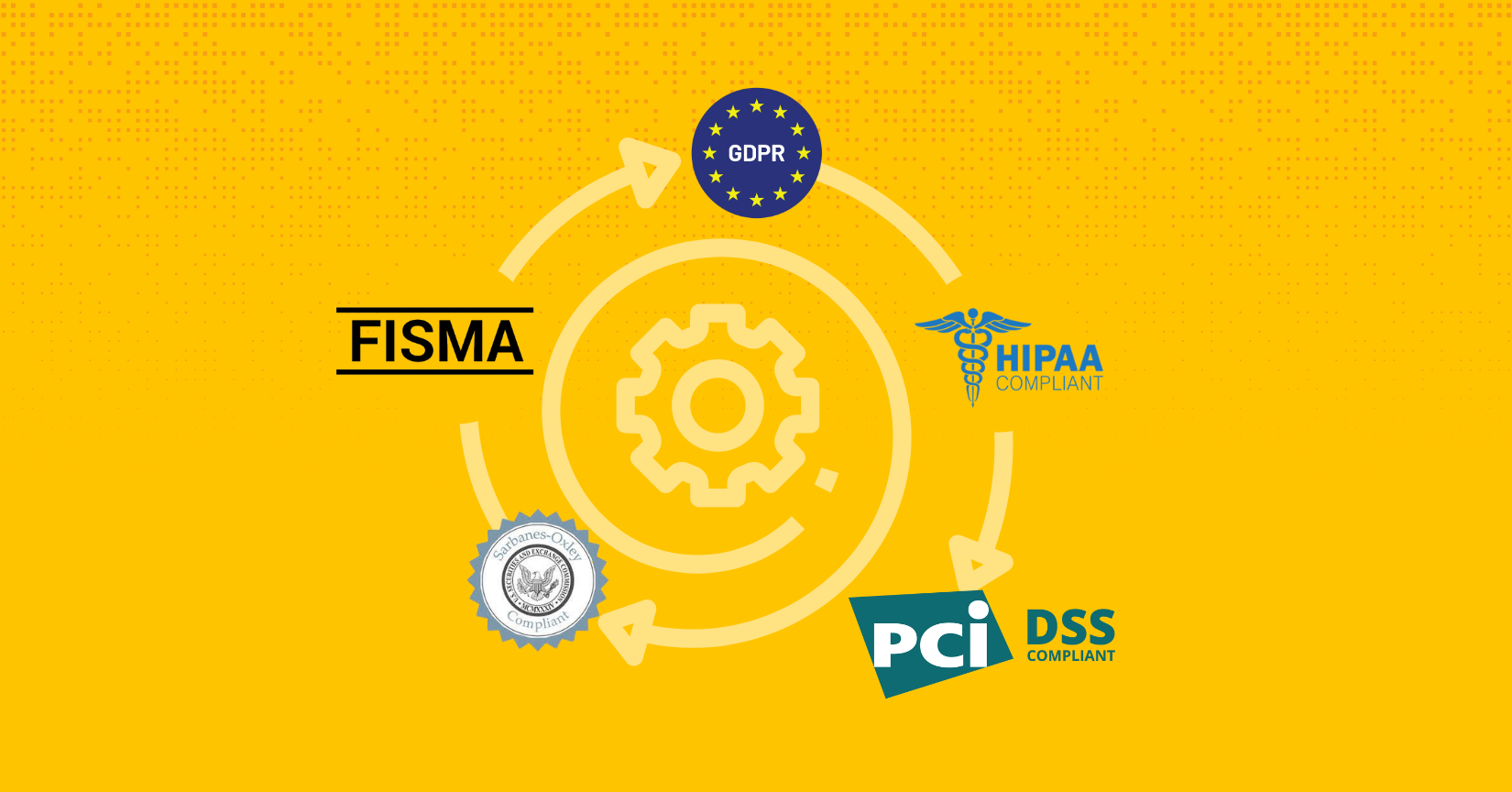
Application security is a critical concern in today’s digital landscape. As organizations develop and deploy apps to cover a wide range of needs, protecting them from malicious attacks is of utmost importance. In fact, sometimes security is even a compliance regulation requirement.
Compliance regulations play a vital role in safeguarding applications and websites by setting standards that developers must adhere to. These regulations help ensure that technology and its outcomes meet an established level of data protection, privacy, and overall security.
This article explores the impact of compliance regulations on application security, highlighting the significance of maintaining both compliance and security in today’s threat landscape.
Compliance regulations are the set of rules, standards, and guidelines established by regulatory bodies or industry organizations to ensure that applications and systems meet specific security requirements. They often cover areas such as data protection, encryption, access controls, secure coding practices, vulnerability management, and incident response. These regulations aim to protect sensitive data, maintain privacy, and mitigate security risks by defining the necessary measures and practices that organizations must follow.
While compliance regulations are extremely important, they require significant effort to implement and maintain. It’s no wonder that many organizations struggle to keep up with cybersecurity regulations, leaving their systems open to potential compromises. As such, organizations that fail to comply with regulations can face serious consequences, including hefty fines and reputational damage.
Below are some of the common compliance regulations that developers and businesses need to be aware of when developing software.
PCI DSS is a set of regulations that applies to organizations handling, processing, or storing payment card data. It establishes comprehensive security requirements to protect against data breaches and unauthorized access. Compliance with PCI-DSS is essential for payment processors, and it involves implementing robust data encryption, secure authentication protocols, and data masking techniques to safeguard payment card information.
In 2013, the retail giant Target reported a major data breach that exposed millions of customer’s personal and financial information. Despite implementing PCI DSS regulations, the company missed critical warnings in its malware detection software, resulting in a significant data breach. The repercussions for Target were massive, with the company agreeing to pay an estimated $18.5 million in fines and settlements.
Implemented in 2018, GDPR is a regulation that focuses on data protection and privacy for individuals within the European Union (EU). It imposes stringent requirements on organizations that collect, process, or store personal data of EU citizens. To comply with GDPR, organizations must implement data minimization practices, ensure strong data security and privacy measures, obtain proper consent, and promptly report data breaches.
In 2022, the Irish Data Protection Commission (DPC) fined Meta a total of €17 million after 12 data breaches exposed the personal data of millions of customers. The Irish DPC found that Meta had failed to implement technical and organizational measures to ensure GDPR compliance, making it liable for the breaches.
HIPAA is a regulation that sets standards for protecting sensitive patient health information in the healthcare industry. It requires healthcare organizations and their business associates to implement safeguards to ensure the confidentiality, integrity, and availability of electronic protected health information (ePHI). Compliance with HIPAA involves implementing access controls, encryption, audit trails, and other security measures to protect patient data.
An example of a software-related violation of HIPAA is the 2019 settlement between the U.S. Department of Health and Human Services (HHS) and EHR vendor Greenway Health. Greenway Health agreed to pay $57.25 million for alleged violations, including failure to conduct a risk analysis, implement sufficient security measures, and enter into business associate agreements.
FISMA applies to federal agencies and contractors working with federal information systems. It establishes a framework for ensuring the security of government information and systems. Compliance with FISMA involves conducting risk assessments, implementing security controls, and developing incident response plans to protect sensitive government information.
The U.S. Office of Personnel Management (OPM) experienced a data breach in 2015 that compromised the personal information of millions of federal employees and government contractors. The U.S. government conducted an investigation and found that the OPM had failed to adequately implement security measures and comply with FISMA requirements, which led to the breach.
SOX is a regulation aimed at enhancing corporate transparency and financial reporting. Organizations must establish internal controls and procedures to ensure accurate financial disclosures. While primarily focused on financial management, compliance with SOX often extends to IT systems and applications that handle financial data.
Peregrine Systems was investigated for accounting irregularities and financial fraud. The company had manipulated its financial statements using software tools to inflate its revenue and deceive investors. As a result, several executives were charged and convicted for their involvement in the fraud. This case highlights the significance of SOX in ensuring accurate financial reporting and ethical business practices within software companies.
Developers need to understand the various compliance regulations and how they apply to cybersecurity. But compliance regulations are just one aspect of application security; organizations must also take proactive measures toward app-hardening. That means regularly reviewing code, understanding and implementing secure coding practices, regularly auditing third-party scripts for vulnerabilities, and ensuring that all data is encrypted.
PreEmptive offers advanced obfuscation tools that help organizations protect their applications from malicious attacks and ensure compliance with security regulations. It uses cutting-edge techniques such as control-flow flattening, tamper detection, and in-app protection transforms to ensure the application code is secure and compliant. Start a free trial and see how it can help you protect your applications today.